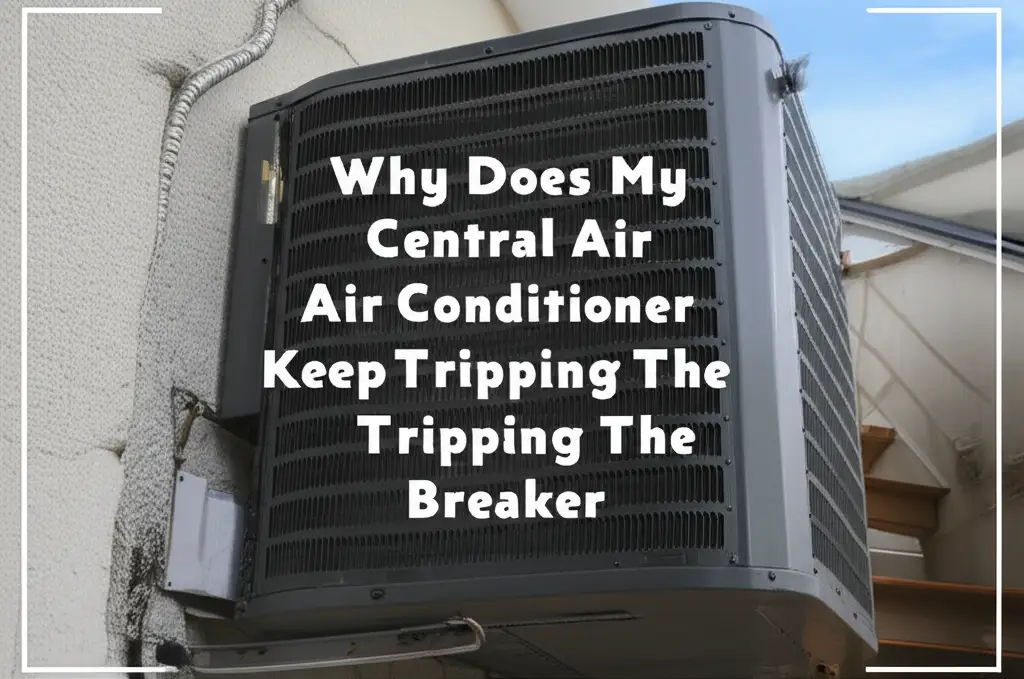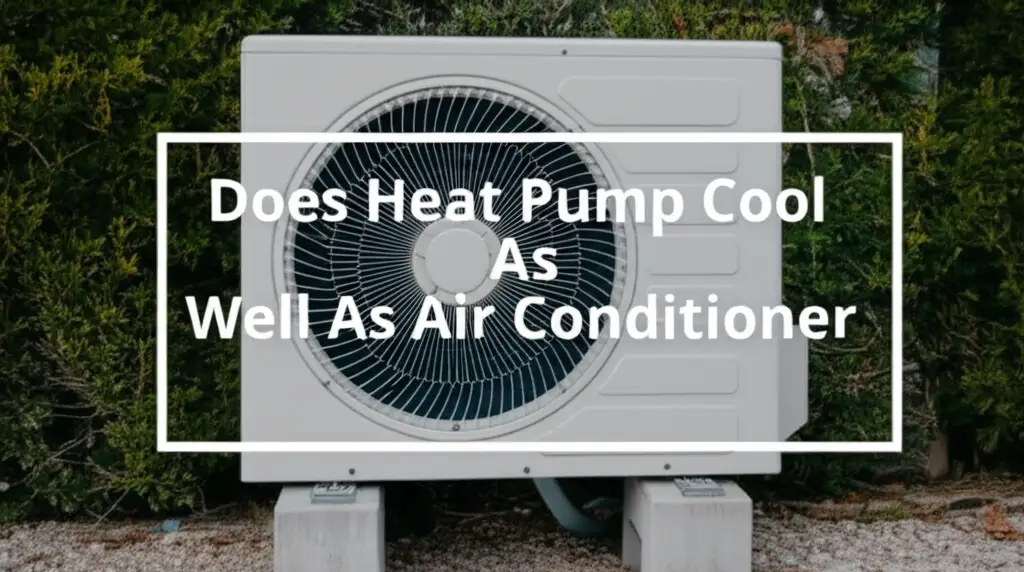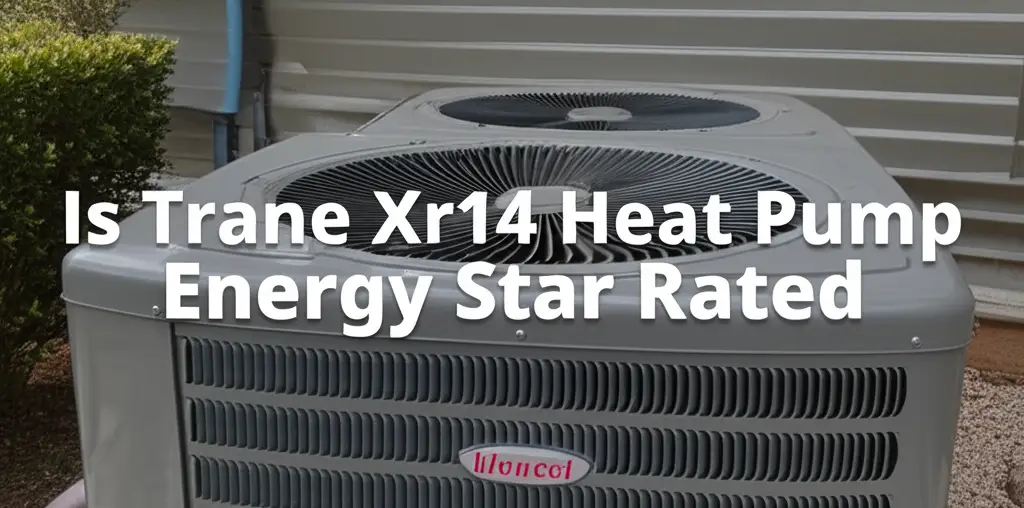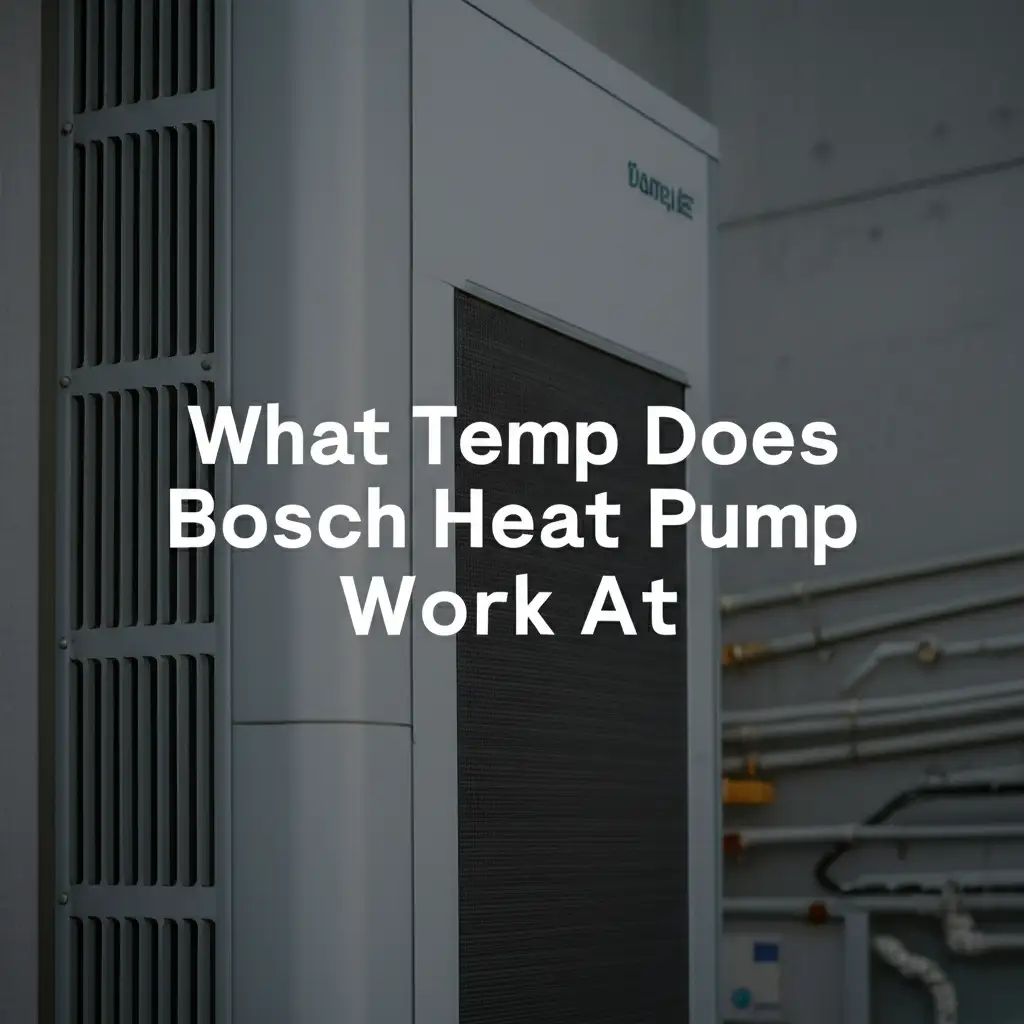· Todd Martin · HVAC Systems · 15 min read
Why Wont My Central Air Conditioner Turn On
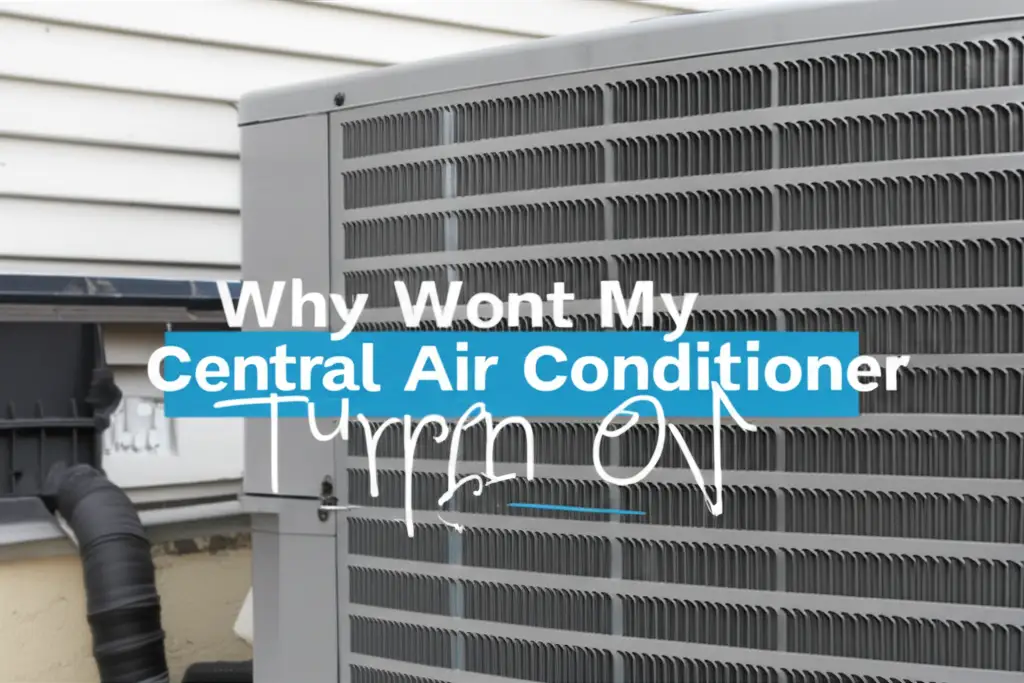
Central Air Conditioner Not Turning On? Solutions to Get Your Cool Back
Imagine this: The sun beats down, temperatures rise, and you head to your thermostat, eager for that cool, refreshing blast. You turn on the central air conditioner, but nothing happens. No hum, no fan, just silence. This frustrating scenario is more common than you think. When your central AC won’t turn on, it disrupts comfort. Finding the reason can save you from sweltering heat. I know how important a working AC is during hot weather. This guide will help you understand common issues and troubleshoot effectively.
This article explains why your central air conditioner fails to start. We will look at electrical problems, thermostat settings, and issues with both indoor and outdoor units. I will provide practical steps you can take yourself. We also discuss when it is best to call a professional. By the end, you will understand the common culprits and have a clear path to fix your cooling system.
Takeaway
- Check Power Sources First: Ensure the circuit breaker is on and the outdoor unit’s disconnect switch is engaged.
- Inspect Thermostat Settings: Verify the mode is set to “Cool” and the temperature is lower than the room. Change batteries if needed.
- Clean and Clear Units: Remove debris from the outdoor condenser and clean the air filter.
- Look for Visible Issues: Check for frozen coils or clogged condensate drains.
- Call a Pro for Complex Problems: If basic troubleshooting fails, issues like refrigerant leaks or failed components need expert attention.
Why Your Central Air Conditioner Isn’t Starting
If your central air conditioner won’t turn on, the most frequent causes include power supply problems, incorrect thermostat settings, tripped circuit breakers, or issues with the outdoor unit’s power disconnect. Other factors such as a clogged air filter, a faulty condensate drain, or a struggling motor can also prevent your central AC from starting its cooling cycle.
Power Problems: Checking Breakers and Switches
A central air conditioner needs electricity to operate. Power issues are often the simplest explanation for why your central AC won’t turn on. Before you panic, check the basics. A tripped circuit breaker is a common culprit. This happens when the circuit draws too much power, or there is an electrical fault.
Your home’s electrical panel contains circuit breakers. Find the breaker labeled for your air conditioner. It might say “AC,” “Furnace,” or “HVAC.” If it is in the “off” position or halfway between “on” and “off,” reset it. Push it firmly to “off,” then back to “on.” Sometimes, the indoor unit and outdoor unit have separate breakers. Check both if you find two related to your AC system.
Beyond the main panel, your outdoor air conditioner unit also has a separate power disconnect switch. This switch is typically located on a box mounted on the wall near the outdoor condenser. It looks like a simple switch or sometimes a pull-out block. Make sure this switch is in the “on” position. Sometimes, people accidentally turn it off. This small step can resolve your problem quickly. Always be careful when dealing with electricity. If you are unsure, consult a qualified electrician.
Thermostat Troubles: Settings and Batteries
The thermostat is the brain of your central air conditioner system. It tells the AC unit what to do and when to do it. If your central AC won’t turn on, the thermostat is a prime suspect. Many people overlook simple thermostat settings. First, check if the thermostat is set to “Cool” mode. Sometimes, it might be on “Heat,” “Fan,” or “Off.” Adjust the mode to “Cool.” Next, ensure the set temperature is lower than the current room temperature. Your AC will not kick on if the room is already cooler than the desired setting.
Thermostat batteries can also cause problems. Many modern digital thermostats use AA or AAA batteries for power. If these batteries die, the thermostat loses power. It cannot send signals to your central air conditioner. You might see a blank screen or a low battery indicator. Replacing the batteries is a quick fix. Always use fresh batteries for the best performance. This simple step can save you a service call.
Old or faulty wiring inside the thermostat can also prevent it from communicating with the AC unit. Sometimes, the thermostat itself malfunctions. If you have ruled out power and settings, consider the thermostat might be broken. A professional HVAC technician can test the thermostat. They can confirm if it sends the correct signals. Understanding your thermostat is key to an efficient cooling system.
Outdoor Unit Concerns: Disconnect Switch and Debris
The outdoor unit, or condenser, is a vital part of your central air conditioner system. It houses the compressor and condenser coils. If this unit does not receive power or has physical obstructions, your central AC will not turn on. First, confirm the outdoor disconnect switch is on. This switch is usually a small box mounted on the wall right next to the condenser unit. It acts as a local shut-off. If someone flipped it off, your AC system will not start.
Next, inspect the outdoor unit for debris. Leaves, grass clippings, dirt, and other outdoor clutter can block the condenser coils. These coils need free airflow to release heat. If they are covered, the unit can overheat. Many units have safety features that prevent them from starting when they are obstructed or at risk of damage. Use a hose to gently spray off the coils. Always turn off the power to the unit at the disconnect switch before cleaning.
A significant amount of debris can hinder performance. Over time, outdoor units gather a lot of dirt. This reduces efficiency and can prevent the AC from starting. I make sure to clean mine regularly. Proper maintenance ensures the unit operates safely. If the outdoor unit hums but the fan does not spin, the fan motor might be faulty. This requires professional attention. For more information on common AC issues, you can read about why your central air conditioner might not be turning on.
Indoor Unit Failures: Blower Motor and Drain Pan
While the outdoor unit handles heat exchange, the indoor unit (air handler or furnace with a coil) is responsible for circulating cool air throughout your home. If this part fails, your central air conditioner will not turn on or distribute air. A common issue is with the blower motor. This motor pushes air across the evaporator coil and through your home’s ducts. If the blower motor is faulty, it will not start. This means no airflow. You might hear a hum but no fan noise. A bad motor requires replacement by a qualified technician.
Another frequent problem in the indoor unit relates to the condensate drain line. As the air conditioner cools, it removes humidity from the air. This moisture collects in a drain pan. It then flows out through a condensate drain line. Over time, algae and mold can grow in this line. This causes blockages. When the drain line clogs, the drain pan overflows. Many central air conditioner systems have a float switch in the drain pan. This switch detects high water levels. If the water rises too high, the float switch trips. It shuts down the AC system to prevent water damage.
To check this, locate the indoor unit. Find the drain pan and the condensate line. If the pan is full of water, the line is likely clogged. You can try to clear the clog yourself. Use a wet/dry vacuum to suction out the clog from the drain line’s outdoor exit point. Or, pour a cup of distilled vinegar down the line to dissolve the blockage. Always turn off power to the unit before performing any maintenance. Addressing these indoor unit failures helps your central AC run properly.
Refrigerant Leaks and Frozen Coils
Refrigerant is the cooling agent in your central air conditioner. It absorbs heat from inside your home and releases it outside. If your central AC won’t turn on, a lack of refrigerant can be the cause. Refrigerant is contained in a sealed system. A leak means the system loses its cooling capacity. Low refrigerant levels can trigger safety cut-off switches. These switches prevent the compressor from running without enough refrigerant, as this can cause severe damage. You might notice less cool air or a hissing sound.
A refrigerant leak often leads to a frozen evaporator coil. When refrigerant levels are low, the pressure inside the system drops. This causes the remaining refrigerant to get too cold. The evaporator coil, located in your indoor unit, can then freeze over. You might see ice on the copper lines or the coil itself. A frozen coil prevents airflow. It also makes the AC system unable to cool your home. The unit senses this blockage and shuts down to prevent damage.
If you suspect a refrigerant leak or see a frozen coil, do not try to fix it yourself. Refrigerant handling requires special tools and licenses. A professional HVAC technician can accurately diagnose the leak. They can repair it and recharge the system with the correct amount of refrigerant. They also check for other issues that might have contributed to the problem. Fixing a frozen coil might involve thawing it. Then, the technician must find the root cause, usually a leak or airflow issue.
Dirty Filters and Blocked Condenser Coils
Dirty filters and blocked condenser coils significantly impact your central air conditioner’s ability to turn on and cool. These issues restrict airflow. When airflow is restricted, your AC system struggles. This struggle can lead to overheating. Most modern AC units have safety mechanisms. These shut down the system before damage occurs. So, if your central AC won’t turn on, a dirty filter is a very common and easy-to-fix culprit.
Air filters trap dust, dirt, and allergens from your indoor air. Over time, these filters become clogged. A clogged filter blocks air from reaching the evaporator coil. This reduces the system’s efficiency. It also makes the AC work harder. This can cause the unit to freeze up or trip a safety switch. I recommend checking your air filter monthly. Replace it every 1-3 months, depending on usage and pet presence. A clean filter ensures proper airflow. It keeps your AC running smoothly.
Similarly, the outdoor condenser coils can become blocked. Leaves, grass clippings, dirt, and other debris accumulate on the coil fins. This layer of grime acts as an insulator. It prevents the coil from releasing heat effectively. When the condenser cannot dissipate heat, the system overheats. The compressor might shut down to protect itself. Always turn off power to the outdoor unit before cleaning. Use a garden hose to gently spray off the debris from the outside in. Keeping these components clean is essential for your central air conditioner’s health and operation. Regular cleaning can extend the life of your unit. Understanding how often you should service your AC can also help prevent these issues. You can learn more about how often central air conditioners should be serviced.
Faulty Components and Professional Help
Sometimes, your central air conditioner won’t turn on due to a failed internal component. These issues are typically beyond a homeowner’s ability to diagnose or repair. The main components within your AC system are complex. They require specialized knowledge and tools. If you have checked all the simple fixes, a professional technician should be your next step. They can accurately identify the problem.
Common faulty components include the capacitor, contactor, or compressor. The capacitor provides a power boost to start the motors. If it fails, the fan or compressor may not start. You might hear a hum but no action. The contactor is an electrical switch that sends power to the compressor and outdoor fan motor. If it burns out or sticks, the outdoor unit will not receive power. A clicking sound without the unit starting can signal a bad contactor. The compressor is the heart of your AC system. It pumps refrigerant. If the compressor fails, your AC unit cannot cool. Compressor failure usually means a costly repair or full unit replacement.
Professional HVAC technicians have diagnostic tools. They can quickly pinpoint the exact component that failed. They also have access to the necessary replacement parts. Attempting complex repairs yourself can be dangerous. It can also cause further damage to your system. It is always wise to call an expert for these types of problems. Investing in professional service ensures your central air conditioner is fixed correctly and safely. Regular maintenance can often prevent these failures. For example, understanding how long your central air conditioner lasts can help you plan for potential part failures or replacements.
Advanced Issues: Electrical Wiring and Safety Switches
Beyond the common problems, complex electrical wiring issues or tripped safety switches can prevent your central air conditioner from turning on. AC systems contain various safety devices. These protect the unit from damage under abnormal conditions. These switches are crucial for system longevity. When one of these switches trips, the AC system shuts down completely. This prevents further damage.
One such device is the high-pressure switch. This switch activates if the refrigerant pressure becomes too high. This often happens if the outdoor coil is very dirty. It can also occur if the outdoor fan is not working. Another is the low-pressure switch. This switch triggers if the refrigerant pressure drops too low. This usually indicates a refrigerant leak. Both switches prevent the compressor from running under unsafe conditions. If either of these switches trips, your central AC will not turn on. Resetting them is not a solution without fixing the underlying problem.
Faulty wiring within the system can also be a significant issue. Loose connections, corroded wires, or damaged insulation can interrupt the electrical flow. This prevents components from receiving power. Electrical problems can be dangerous. Never attempt to diagnose or repair complex wiring issues yourself. They require a licensed electrician or an HVAC professional. These experts use specialized meters to test circuits. They can identify and safely repair any electrical faults. Sometimes, the problem might even stem from the control board. This circuit board manages all the operations of your AC unit. A failed control board means your central air conditioner will not respond to any commands. These advanced issues require professional diagnostic and repair services. For example, a freezing AC line often points to pressure issues that trip these safety switches.
FAQ Section
Q1: Why does my central AC unit hum but not turn on?
A central AC unit that hums but does not start often indicates a problem with the fan motor or the capacitor. The capacitor provides the initial boost to start the motor. If it fails, the motor may hum but lack the power to spin. The fan motor itself might also be faulty. Both issues require professional diagnosis and repair.
Q2: Can a dirty air filter prevent my central AC from turning on?
Yes, a very dirty air filter can prevent your central air conditioner from turning on. A clogged filter severely restricts airflow. This can cause the evaporator coil to freeze over. Many AC units have safety switches that shut down the system when ice forms or airflow is too low. This protects the unit from damage.
Q3: What should I check first if my central air conditioner won’t start?
First, check your home’s circuit breaker panel. Locate the breaker for your central AC and ensure it is in the “on” position. Also, check the power disconnect switch near your outdoor unit. It must be turned on. Then, inspect your thermostat settings to ensure it is in “Cool” mode and the temperature is set low enough.
Q4: How do I know if my AC problem needs a professional?
You should call a professional if basic troubleshooting steps do not resolve the issue. This includes checking power, thermostat, and filters. If you suspect a refrigerant leak, hear unusual noises, or see ice on the lines, professional help is needed. Complex electrical problems or failed internal components also require expert service.
Q5: How often should I perform maintenance to prevent AC startup issues?
You should perform basic maintenance regularly. Check and replace your air filter every 1-3 months. Clean the outdoor condenser coils at least once a year. Schedule a professional tune-up for your central air conditioner annually. This preventative maintenance helps catch small issues before they become major problems.
Q6: Can extreme heat cause my central air conditioner to not turn on?
Extreme heat can stress your central air conditioner. If the outdoor temperature is too high, the unit may struggle to dissipate heat. This can cause the compressor to overheat and trip a safety switch. While not directly preventing it from turning on, it can cause the unit to shut down shortly after starting or prevent it from running continuously.
Conclusion
When your central air conditioner won’t turn on, it can be a source of immediate discomfort. We have covered several common culprits. These include power issues, thermostat problems, and unit specific failures. Simple steps like checking your circuit breaker, adjusting thermostat settings, or cleaning filters can often resolve the issue. Taking these first steps yourself can save time and money.
However, some problems require specialized attention. Issues like refrigerant leaks, faulty capacitors, or compressor failures need a professional HVAC technician. These experts have the tools and knowledge to safely diagnose and repair complex systems. Do not hesitate to call them if you are unsure or uncomfortable with a repair. Regular maintenance is key to preventing many of these issues. Make it a habit to clean your filters and schedule annual professional check-ups. Keeping your central air conditioner in good working order ensures reliable cooling when you need it most. Stay cool this season.
```yaml
publishDate: 2025-09-06T00:00:00Z
author: Todd Martin
title: Why Wont My Central Air Conditioner Turn On
excerpt: Is your central air conditioner refusing to turn on? Find common reasons why your central AC won't start and simple steps to restore comfort.
image: https://res.cloudinary.com/dbcpfy04c/image/upload/v1752352352/blog_image_1752352351_mfi9wh.webp
category: HVAC Systems
tags:
- AC troubleshooting
- Central AC repair
- Air conditioner problems
- Home cooling solutions
metadata:
canonical: https://www.homeessentialsguide.com/why-wont-my-central-air-conditioner-turn-on- AC troubleshooting
- Central AC repair
- Air conditioner problems
- Home cooling solutions


